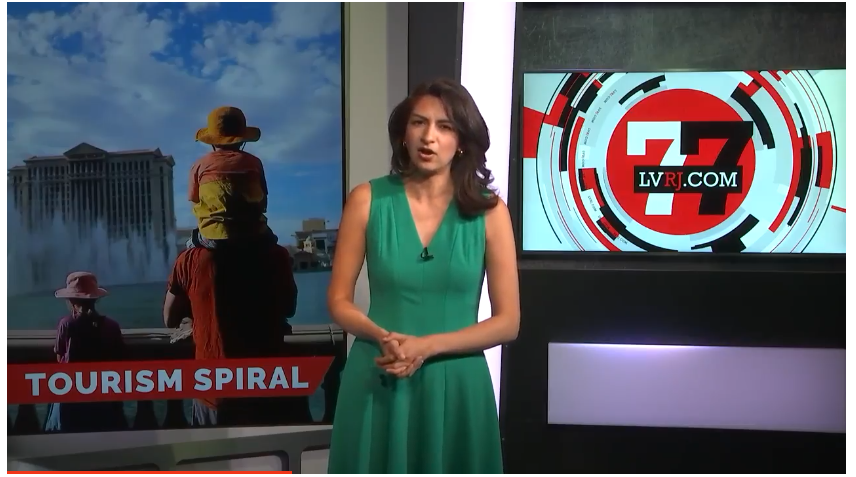Nevada Current: Trump administration guts program for families struggling to pay utility bills
- Apr 28, 2025
- 4 min read
By: Jeniffer Solis - April 28, 2025 5:00 am

As high summer temperatures start to creep across the state, about $1.4 million in federal funding meant to help low-income Nevadans pay utility bills is in limbo after the Trump administration fired every employee responsible for administering the funds.
Earlier this month, the U.S. Department of Health and Human Services (HHS) terminated the entire staff that allocates funds for the Low Income Home Energy Assistance Program (LIHEAP) as part of a broad effort by the White House to dramatically downsize the federal government.
Federal funding for LIHEAP is approved by Congress and funneled through state programs which use the money to pay energy providers directly in order to help low-income families avoid shutoffs.
Consumer advocates warn that the layoffs could threaten or delay nearly $400 million in utility assistance funding that had not yet been distributed to states by the time the federal program was gutted.
Nevada was awarded about $15 million in LIHEAP funding this year, but about $1.4 million of that funding is now in limbo after the program was essentially shuttered in early April.
According to the Nevada Division of Welfare and Supportive Services — which administers the state’s LIHEAP funding —Nevada has not received the remaining 10% of its allocated funding as of Thursday.
Earlier this month, Nevada Sen. Jacky Rosen and several other Democratic senators sent a letter to HHS urging the agency to disburse all of the LIHEAP funds that Congress has appropriated.
“By terminating all 23 employees tasked with overseeing LIHEAP, it is now unclear how these funds will be administered. In our view, that is unacceptable,” reads the letter. “Failure to disburse these funds constitutes an illegal impoundment of bipartisan, congressionally appropriated funds and will put the health and well-being of some of the most vulnerable people in America at risk.”
HHS did not respond to a request for comment on the fate of Nevada’s remaining funding.
Nevada’s Energy Assistance Program received more than half its funding from LIHEAP last year, making it a vital source of utility assistance funding for the state.
Last year, Nevada’s Energy Assistance Program paid out more than $31 million in benefits to help more than 17,000 households in the state keep their power on. A portion of those funds were also used to help low-income households pay for upgrades that improve energy efficiency and lower power bills in the long term.
Still, as temperatures rise there is a growing demand for utility assistance funding in the state. Nearly 32,000 Nevadans had their power disconnected by NV Energy for nonpayment in 2024, according to data from the Public Utilities Commission of Nevada.
In southern Nevada, where temperatures reached 100 degrees or higher for 64 consecutive days in 2024, air conditioning is a life-saving necessity.
Extreme heat exposure is a serious health hazard. It can cause heat rash, cramps, heat exhaustion, or heat stroke, which can be fatal or have lifelong consequences. Older people, people with disabilities, pregnant people, and children are at increased risk of adverse health impacts from heat.
Without the remaining 10% of Nevada’s LIHEAP funding, the state won’t be able to provide financial assistance to as many households struggling to pay their energy bills.
The state’s ability to provide energy assistance could be reduced even more in 2026, as the Trump administration has signaled it could end the program next year. A leaked draft budget request document from the HHS proposes allocating zero funding for the LIHEAP program in 2026, according to reporting by the Hill.
The U.S. Constitution puts Congress, not the president, in charge of federal spending, but the Trump administration has been challenging congressional power of the purse, with little pushback from Republicans in control of the legislative branch.
The administration’s termination of LIHEAP programs and staff is raising alarms for consumer advocates.
Keriann Conroy, a research associate with the Energy and Policy Institute, a utility watchdog organization, said any reduction in LIHEAP funding could be especially devastating for Nevada.
“It’s the main source of energy assistance funding that exists both nationwide and in the state of Nevada,” Conroy said.
“This is absolutely a program people depend on. I think you’ll see the most vulnerable people being disconnected and being put in life threatening circumstances,” Conroy said. “Since most Nevadans are already struggling to pay their utility bills you’d see that extend to a larger group of people.”
Reno and Las Vegas are the two fastest-warming cities in the country, according to climate scientists at Climate Central. Heat played a role in the deaths of 527 people last year in Southern Nevada alone, according to the Southern Nevada Health District.
Yet, Nevada’s customer protections against utility companies disconnecting consumers during extreme weather are limited.
Nevada is one of 19 states that does not require utilities to publicly disclose the number of customers they disconnect to utility regulators, leaving little transparency to understand the full extent of disconnections. However, Nevada lawmakers are currently considering a bill that would require utilities to report disconnections by month and zip code.
Nevada also does not have a blanket moratorium on utility disconnections during months of extreme weather, like many other states do, including neighboring Arizona.
“If LIHEAP assistance disappears, it will add insult to injury in a state with limited consumer protections. Nevada’s customer protections against utility companies disconnecting consumers during extreme weather are limited,” Conroy said.
Jeniffer was born and raised in Las Vegas, Nevada where she attended the University of Nevada, Las Vegas before graduating in 2017 with a B.A in Journalism and Media Studies.
Nevada Current is part of States Newsroom, the nation’s largest state-focused nonprofit news organization.




Comments